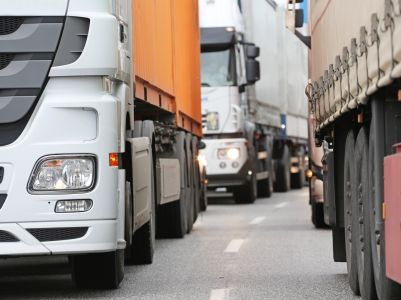
3.3 million tonnes of CO2, 704 tonnes of nitrogen oxides, and 251 tonnes of dust per year. This is the balance of two restrictions – the compulsory return of the vehicle to the member state of establishment and the application of cabotage quotas – dictated by the mobility package, which are due to be implemented in February of next year.
The data comes from published research commissioned by the European Commission in order to evaluate the potential effects of the aforementioned changes.
On 19 February of this year, the European Commission presented the report indicating that the compulsory return of the vehicle to the member state of establishment every eight weeks would raise emissions of carbon dioxide in road transport by 4.6% in 2023.
It should be noted that the European Commission expressed concern that the two aforementioned aspects of changes in the effective regulations concerning transport within the European Union would fail to comply with the premises of the European Green Deal as early as during the negotiation stage of the mobility package. Regardless, the two provisions were not subject to evaluation of impact before the package was adopted, which is why the European Commission undertook to conduct an extensive analysis of their probable impact on the climate, environment, and consolidated market. The concluded research was conducted by independent consultants and shared with all stakeholders – member states and the European Parliament.
The results are clear and show that the compulsory return of the vehicle and the application of cabotage quotas will have a negative impact on CO2 emissions produced by transport and will not comply with the ambitions of the European Green Deal. In the presented scenario, the analysis of the compulsory return of the vehicle shows that it may lead to extra runs producing as much as 2.9 million tonnes of extra CO2 emissions in 2023. According to the study of cabotage quotas, the new regulation may produce an extra 397 000 tonnes of CO2 emissions and potential negative long-term effects on rail and intermodal goods carriers.
In comparison – with consideration of the results of both surveys – the two provisions could produce an extra 3.3 million tonnes of CO2 emissions annually, which is comparable with the annual transport emissions produced in Estonia.
The European Commission intends to use the data and research results to launch discussions with member states, the European Parliament, and all stakeholders concerning potential future activity with consideration of the objectives of Green deal, proper operation of the consolidated market, and the need to ensure high social standards and prosperity for drivers.
During our training courses and webinars we revealed aforementioned effects are under evaluation and encouraged everyone to take part in the survey. Our experts will continue to monitor the situation and report whether the extra CO2 emissions will lead to changes in the mobility package, the successive provisions of which are to take effect in February of next year.
European Commission reports:
https://ec.europa.eu/transport/modes/road/news/2021-02-mobility-package-i-studies_en
https://op.europa.eu/en/publication-detail/-/publication/131db520-72ab-11eb-9ac9-01aa75ed71a1
https://op.europa.eu/en/publication-detail/-/publication/72659808-7ec1-11ea-aea8-01aa75ed71a1

INELO Polska spółka z ograniczoną odpowiedzialnością
43-300 Bielsko – Biała,
ul. Karpacka 24/U2b
POLAND
KRS 0000702969
tel.: +48 33 496 58 71
fax: +48 33 496 58 71 ext. 111
e-mail: control@inelo.pl